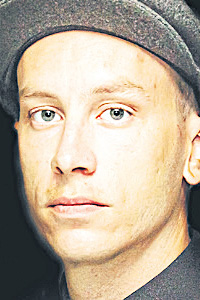Trudeau is not a new name in Canadian politics. Where I come from, it hasn't aged well. So, when I saw a smile break out on the face of a Thai as the topic of Justin Trudeau came up in a recent conversation, I was caught off guard, being in the Land of Smiles notwithstanding.
Trudeau has been Canada's prime minister for just over a year now, but to many in my home province of Saskatchewan the significance of his family name goes back nearly five decades. His father, Pierre Elliott Trudeau, became Canada's leader in 1968.
My own education about the elder Trudeau began at a Christian summer camp near my hometown of Swift Current. Throughout the late 1990s and early 2000s, I spent at least a week there each summer, being steeped in faith and fun.
One of my camp counsellors wore an old trucker cap emblazoned with the phrase "Come West Trudeau". Next to the words was an image of a noose hanging from a tree.
Impressionable at the time, I felt my counsellor to be the apex of style and righteousness, but I was struck by the cap's ominous message. I later asked my dad what it meant and I recall him doing his best to explain it in context, adding grains of salt where required.
More than 15 years in office, the original Trudeau did much to raise western Canadian ire including his perceived disregard for the plight of struggling farmers, his forcible implementation of the metric system and his ill-fated National Energy Program. Between his policy and his sometimes cavalier demeanour, many people in the region felt as though their PM didn't care about them.
Time has done little to change deep-set impressions of the man. As one of Saskatchewan's right-wing commentators recently put it: "Memories around here are long."
That is true. But some can also be selective, at times.
For instance, a part of Pierre Trudeau's legacy that gets less recognition where I'm from is the 1982 Constitution Act. It entrenched in our constitution the Canadian Charter of Rights and Freedoms. Alongside other freedom, it grants "freedom of thought, belief, opinion and expression, including freedom of the press".
The man who is the subject of such resentment from many in the West worked to ensure their freedom to profess it.
Though we are not always successful, our freedom of expression helps us hold our leaders, and each other, to account.
It maintains an open dialogue about the past and the present. With it, we can discuss our visions for the future and, going forward, whether those visions include Justin Trudeau.
Over his year-long tenure, our current PM has not been idle.
He created Canada's first gender-balanced cabinet. He and his government made changes to federal spending. They retooled Canada's military contribution to the fight against terrorism and helped bring 25,000 Syrian refugees into the country. They have moved to legalise marijuana. They launched a national inquiry into missing and murdered Indigenous women and girls and, recently, they announced a nationwide carbon tax (2018). All of this has been met with both praise and criticism.
He has not yet managed to win a consensus of affection in the West, where the cards of history and ideology are largely stacked against him. I don't expect him to.
What I do expect is, even as the Trudeau name endures a new volley of criticism from frustrated Westerners, that he will support, as his father did, our freedom of expression.
For the time being, it seems he is ready to do just that.
"Freedom of expression is a true Canadian value, one protected by our Charter of Rights and Freedoms," he said, during a Sept 1 address to the Canada China Business Council in Shanghai.
"In a world of rapid change, it is a diversity of ideas and the free ability to express them that drives positive change."
Our freedom to express is not absolute and has itself come under scrutiny, but it is an integral part of Canadian democracy.
Our country is vast, diverse and divided over many issues. As such, we often struggle to define a single national identity. However, our freedom to express our differences says a whole lot about who we are.
In Canada, that freedom is protected, and that is what makes me smile.
Brandon Harder is an intern at the Life section of the Bangkok Post.
